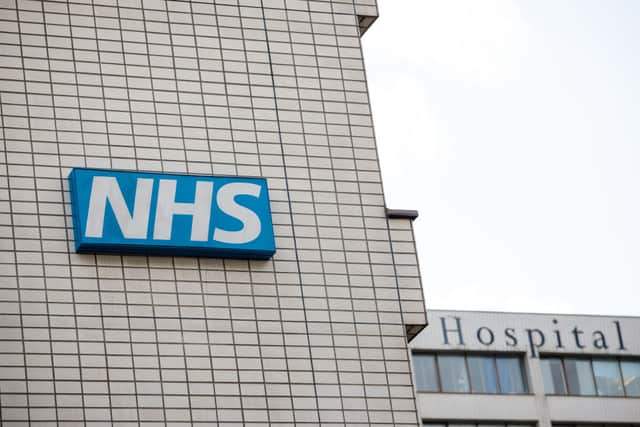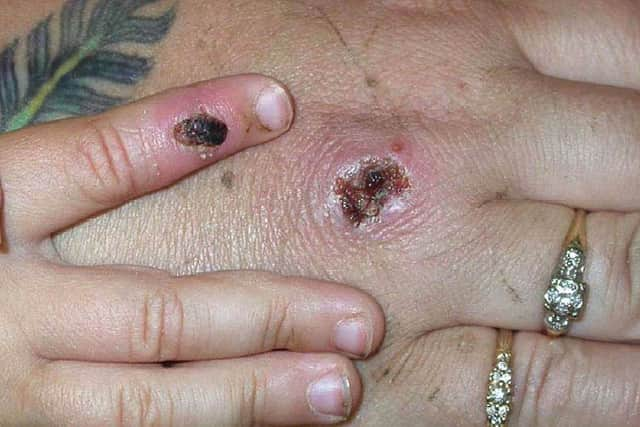Monkeypox virus: Patient treated with rare infection in south London hospital - what is monkey pox?
and live on Freeview channel 276
A patient is being treated at a specialist unit in south London after they were diagnosed with monkeypox, the UK Health Security Agency has said.
The patient recently travelled to Nigeria, which is where they are believed to have contracted the infection, before travelling to the UK, the health agency said on Saturday.


Advertisement
Hide AdAdvertisement
Hide AdThey are now being treated in isolation at an expert infectious disease unit at Guy’s and St Thomas’ NHS trust.
Monkeypox is a rare viral infection from which most people recover in a few weeks, according to the NHS.
The UKHSA said monkeypox does not spread easily between people and the risk to the wider public was very low.
As a precautionary measure, the health agency is working closely with NHS colleagues and will be contacting people who might have been in close contact with the individual to provide information and health advice.
Advertisement
Hide AdAdvertisement
Hide AdThe first-ever recorded occurrence of the virus in the UK was in 2018, and since then a handful of cases have been confirmed by health authorities.


What is monkeypox?
Monkeypox can be caught from infected wild animals in parts of west and central Africa.
It’s thought to be spread by rodents, such as rats, mice and squirrels.
You can catch monkeypox from an infected animal if you’re bitten or you touch its blood, body fluids, spots, blisters or scabs.
Advertisement
Hide AdAdvertisement
Hide AdIt may also be possible to catch monkeypox by eating meat from an infected animal that has not been cooked thoroughly, or by touching other products from infected animals
According to the NHS, it’s very uncommon to get monkeypox from a person with the infection because it does not spread easily between people.
But it can be spread through: touching clothing, bedding or towels used by someone with the monkeypox rash, touching monkeypox skin blisters or scabs, ot through the coughs or sneezes of a person with the monkeypox rash
Early symptoms of monkeypox include fever, headache, muscle aches, backache, swollen lymph nodes, chills and exhaustion.
Advertisement
Hide AdAdvertisement
Hide AdA rash can also develop, usually starting on the face before spreading to other areas of the body.
The rash progresses through different states until it forms a scab which falls off.
Symptoms usually clear up within two to four weeks.
Dr Colin Brown, Director of Clinical and Emerging Infections, UKHSA, said: “It is important to emphasise that monkeypox does not spread easily between people and the overall risk to the general public is very low.
“We are working with NHS England and NHS Improvement (NHSEI) to contact the individuals who have had close contact with the case prior to confirmation of their infection, to assess them as necessary and provide advice.
Advertisement
Hide AdAdvertisement
Hide Ad“UKHSA and the NHS have well established and robust infection control procedures for dealing with cases of imported infectious disease and these will be strictly followed.
Dr Nicholas Price, director of NHSE high consequence infection diseases (airborne) network and consultant in infectious diseases at Guy’s and St Thomas’ said: “The patient is being treated in our specialist isolation unit at St Thomas’ Hospital by expert clinical staff with strict infection prevention procedures.
“This is a good example of the way that the High Consequence Infectious Diseases national network and UKHSA work closely together in responding swiftly and effectively to these sporadic cases.”
Comment Guidelines
National World encourages reader discussion on our stories. User feedback, insights and back-and-forth exchanges add a rich layer of context to reporting. Please review our Community Guidelines before commenting.
